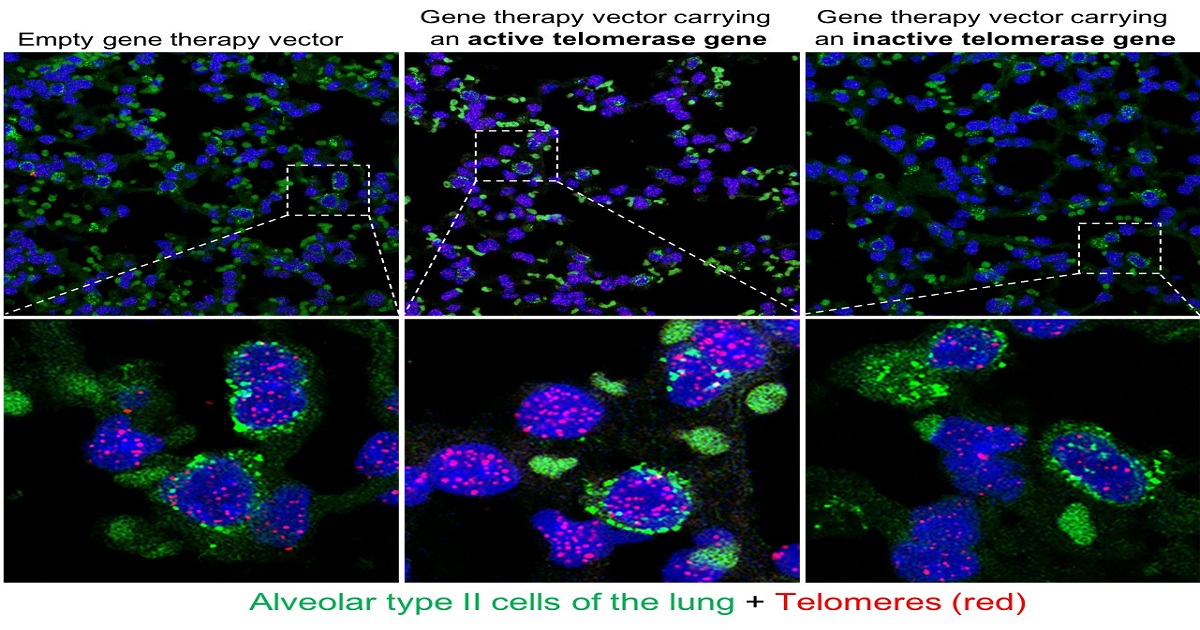No Cancer Risk for Telomerase Gene Therapy
Technology Networks | August 21, 2018

Representative images of lungs treated with gene therapy vectors. The nuclei are in blue, alveolar type II cells in green and telomeres in red. Notice that lung cells treated with active telomerase present more intense telomeres indicating that they are longer as compared to lung cells treated with the null vectors or with an inactive telomerase. Credit: CNIO. Negative results and findings in science are perhaps less newsworthy, but they are no less important. Particularly when, as in this case, they demonstrate that a possible new therapeutic pathway against idiopathic pulmonary fibrosis and other diseases associated with short telomeres is in fact safe. Researchers from the Spanish National Cancer Research Centre (CNIO) have shown in a new study that the gene therapy with telomerase that they have developed, and which has proven to be effective in mice against diseases caused by excessive telomere shortening and ageing, does not cause cancer or increase the risk of developing it, even in a cancer-prone setting.